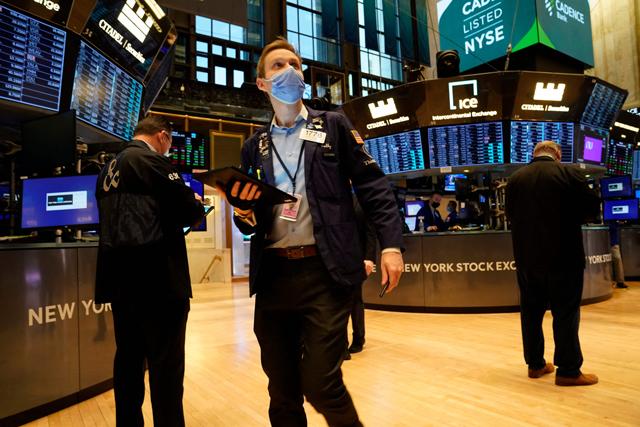You are here
Service-dependent economies feel coronavirus pain — IMF
By AFP - Jun 16,2020 - Last updated at Jun 16,2020

Gita Gopinath, International Monetary Fund chief economist and director of the Research Department, speaks at a briefing during the IMF and World Bank Fall Meetings in Washington, DC, on October 15, 2019 (AFP photo)
WASHINGTON — The COVID-19 pandemic has unleashed a truly global economic crisis, but countries that rely on services like tourism are suffering the worst damage, International Monetary Fund (IMF) Chief Economist Gita Gopinath said on Tuesday.
Despite the scale of devastation, financial markets are rising, apparently disconnected from world events, Gopinath said in a blog post.
“For the first time since the Great Depression, both advanced and emerging market economies will be in recession in 2020,” she said. “Past crises, as deep and severe as they were, remained confined to smaller segments of the world.”
While most crises hit manufacturing as investment falls, advanced and emerging market economies are seeing a larger impact in services, she said.
In China, which was the first to exit the lockdown, “the recovery of the services sector lags manufacturing as such services as hospitality and travel struggle to regain demand”.
She said pent-up consumer demand might lead to a quick recovery. “However, this is not guaranteed in a health crisis as consumers may change spending behaviour to minimise social interaction, and uncertainty can lead households to save more.”
This is of particular concern for economies that depend on tourism.
The IMF official also noted the “striking divergence of financial markets from the real economy”, possibly buoyed by the massive policy response from governments and central banks.
However, she cautioned that markets could see “sharp corrections” if bad news emerges on economic data or health issues.
Even as countries begin to emerge from lockdowns, “there remains profound uncertainty about the path of the recovery”.
The IMF is due to release its updated World Economic Outlook on June 24 which Gopinath said “is likely to show negative growth rates even worse than previously estimated”.
Related Articles
WASHINGTON, DC —The International Monetary Fund (IMF) on Tuesday kept its forecast for economic growth in Jordan in 2019 at 2.2 per cent, th
WASHINGTON — Global equity markets that have see-sawed in recent weeks but show signs of "overvaluation" are at risk of a sharp correction a
WASHINGTON — Rising energy prices are weighing on households but the recent spike is unlikely to fuel a 1970s-style oil crisis and should re

















